#aelita queen of mars
Explore tagged Tumblr posts
Text



AELITA: QUEEN OF MARS (Yakov Protazanov, 1924)
225 notes
·
View notes
Text

Mr. Galaxy
263 notes
·
View notes
Text

'Aelita: Queen of Mars' by Sam Chivers.
Officially licensed 18" x 24" screen print on 300gsm Gmund Bauhaus paper, in a numbered limited edition of 50 for £50, with gallery stamp on the reverse.
On sale Tuesday September 24 at 5pm UK through Black Dragon Press.
10 notes
·
View notes
Text
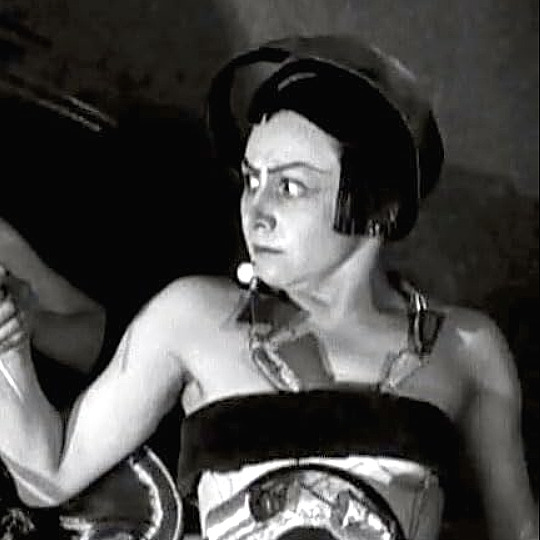
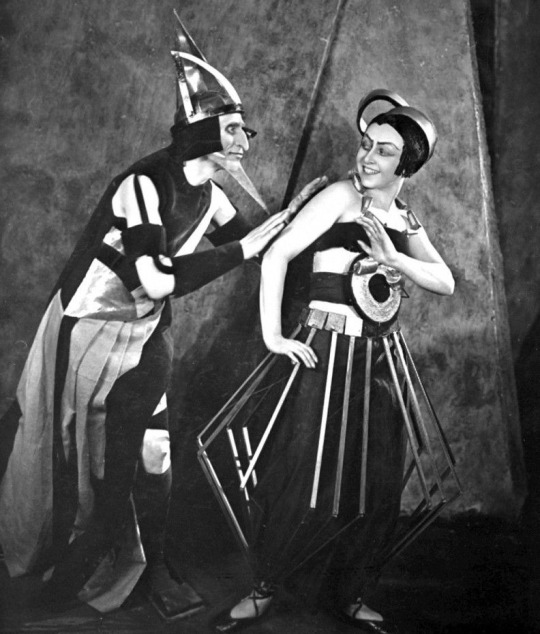
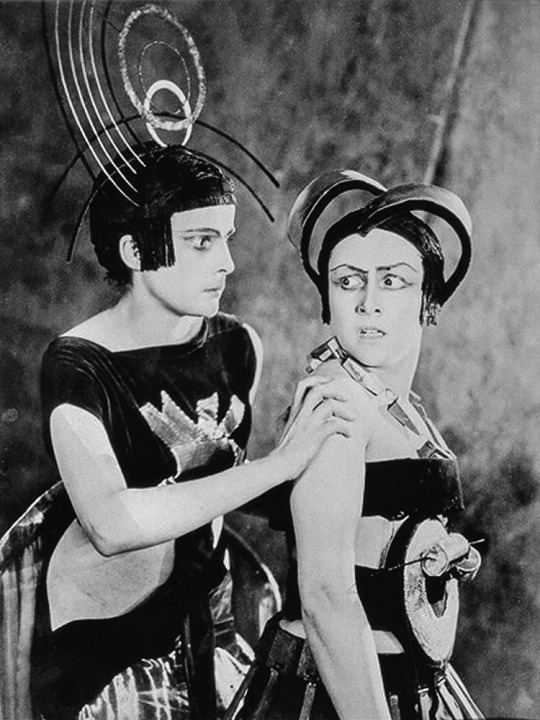
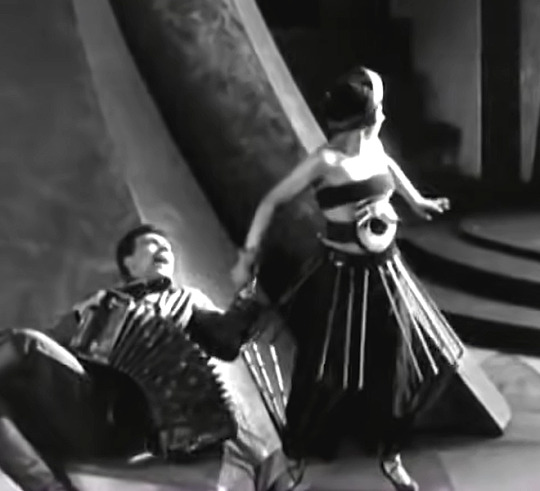

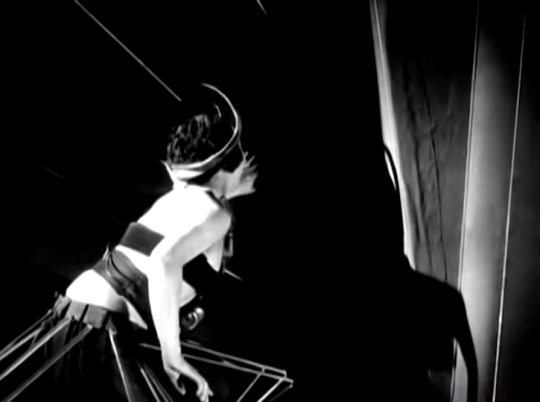
One Dress a Day Challenge
August: Fantasy & Sci-Fi
Aelita, Queen of Mars / Aleksandra Peregonets as Ikhoshka
I think of this as "the bumblebee costume" because of the striped body and the headdress that reminds me of antennae. Ikhoshka is Queen Aelita's favorite servant, and she wears this elaborate framework "skirt" over a pair of baggy pantaloons. She also has ballet slippers, a chunky necklace, and something like a battery pack at her waist.
The costumes for the Martian sequences, designed by Aleksandra Ekster, are outlandish and highly imaginative. This movie was said to be a strong influence on Metropolis. You can find several versions of it free to watch on YouTube.
#aelita queen of mars#aelita#scifi costumes#aleksandra peregonets#one dress a day challenge#one dress a week challenge#movie costumes#1924 movies#1924 films#silent movies#silent era#silent films#russian movies#russian film#russian cinema#soviet cinema#black and white movies#aleksandra ekster#soviet films#ikhoshka#youtube
78 notes
·
View notes
Text
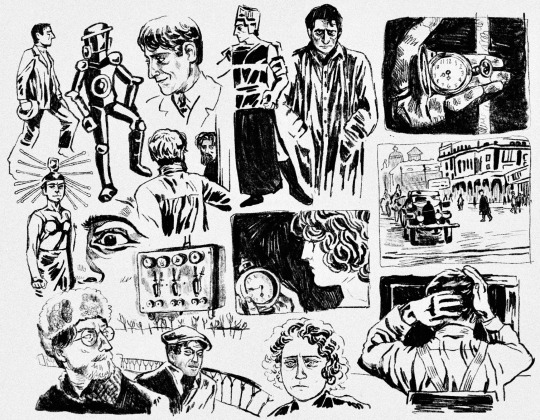
Doodles while watching Aelita: Queen of Mars
#aelita queen of mars#Аэли́та 1924#my art#there is much less Aelita: Queen of Mars in this movie than I expected#I thought it would be like Lang’s Woman in the Moon but it was more like Gilliam’s Brazil#couldn’t say if I liked it but it was fun to doodle
25 notes
·
View notes
Text






'Aelita-Queen of Mars' 1924. Screenshots.
1 note
·
View note
Photo

(via RADIUM AGE ART (1924) – HILOBROW)
Aelita: Queen of Mars is a 1924 Soviet silent sf film based on Alexei Tolstoy’s 1923 novel.
32 notes
·
View notes
Text
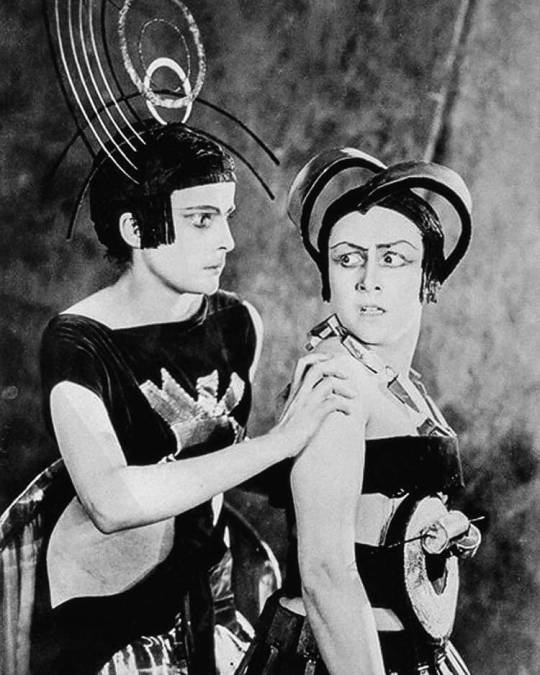
A scene from the 1924 Russian science fiction silent film AELITA: QUEEN OF MARS.
7 notes
·
View notes
Text




4 notes
·
View notes
Photo
Making the Pulp happen with some impressive cardboard and sheet metal tube aesthetics there.
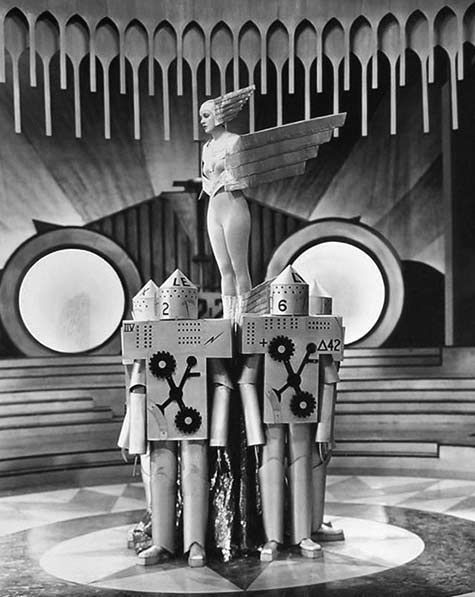
“Aelita, Queen of Mars” (1924)
2K notes
·
View notes
Text
Now watching:

This is from 1924 and is the first big budget movie from the Soviet Union. I’m only a few minutes in, but the Martian sets and costumes are FANTASTIC.
1 note
·
View note
Text

1925 Poster for "Aelita, Queen of Mars", Russia's first science fiction film.
65 notes
·
View notes
Text

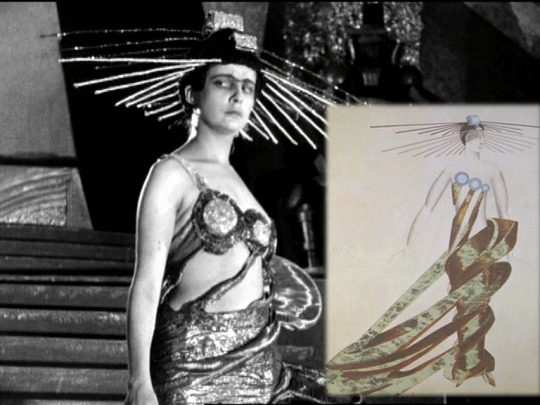
One Dress a Day Challenge
February: Coeli's Monochrome Picks
Aelita, Queen of Mars / Yuliya Solntseva as Aelita
Coeli's comment: "Aelita: Queen of Mars has some magnificently weird Constructivist costumes in the Martian sequence (contrasting with the dull Soviet realism of the rest of the movie!)."
The Martian costumes in this film, by Aleksandra Ekster, are indeed quite something! Here, Aelita wears a hat that's something like an umbrella spine or perhaps a radio antenna. And is the design of that bodice meant to hint that she has three breasts, or is it just a stylistic thing?
There's a cool writeup and summary of the movie here.
I featured a costume Ikhoshka, Aelita's servant (who dresses like a bumblebee in a birdcage), in a previous post.
#aelita queen of mars#coeli's picks#yuliya solntseva#one dress a day challenge#one dress a week challenge#movie costumes#sci-fi costumes#1924 movies#1924 films#silent era#silent movies#silent films#black and white films#black and white movies#russian cinema#russian movies#russian films#aleksandra ekster#soviet cinema#soviet films
11 notes
·
View notes
Photo

Aelita, Queen of Mars (1924)
78 notes
·
View notes
Text







'Aelita-Queen of Mars' 1924. Screenshots.
0 notes
Text





The gown here was designed for the movie Aelita: Queen of Mars, which was also playing on the wall behind it
6 notes
·
View notes